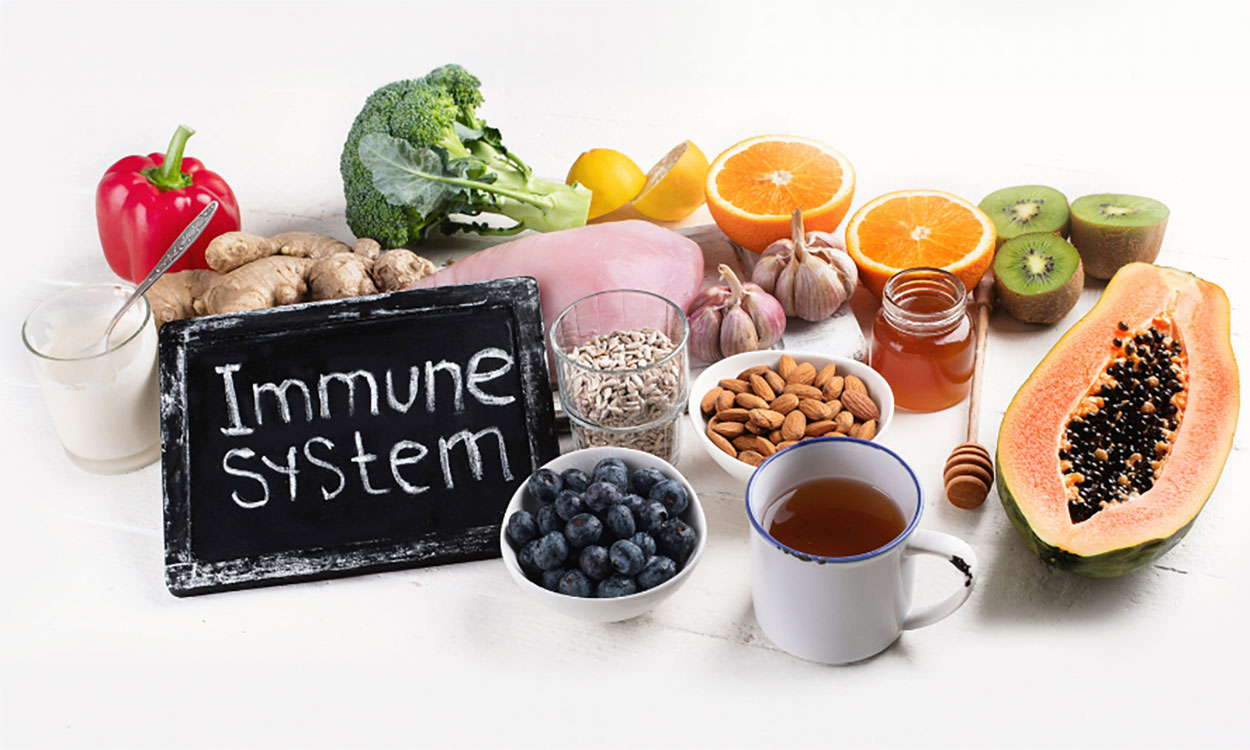
How can you boost your immune system naturally? Your immune system is like a personal bodyguard, always on duty to protect you from germs and illnesses. But how can you make it stronger? Eating a balanced diet rich in fruits, vegetables, and whole grains is a great start. Regular exercise also helps, as it keeps your body in top shape. Getting enough sleep is crucial too, as your body repairs itself during rest. Don't forget about hydration; water helps flush out toxins. Lastly, managing stress through activities like yoga or meditation can keep your immune system functioning well. Ready to learn more? Let's dive into 32 facts that will help you support your immune system!
Key Takeaways:
- "Eating foods rich in Vitamin C, D, and zinc can boost your immune system. Don't forget to include fruits, yogurt, and nuts in your diet for a healthier you!"
- "Besides eating right, remember to exercise, get enough sleep, and keep your surroundings clean. These habits, along with regular check-ups, can help keep your immune system strong and ready to fight off infections."
How Nutrition Supports the Immune System
Eating the right foods can boost your immune system. Here are some facts about how nutrition plays a role in keeping you healthy.
- Vitamin C is crucial for immune function. Found in citrus fruits, it helps stimulate the production of white blood cells.
- Vitamin D enhances pathogen-fighting effects of monocytes and macrophages. Sunlight exposure and fortified foods are good sources.
- Zinc is essential for immune cell development. Foods like meat, shellfish, and legumes are rich in zinc.
- Probiotics found in yogurt and fermented foods can improve gut health, which is linked to better immunity.
- Antioxidants like those in berries protect cells from damage by free radicals.
- Protein is vital for building and repairing body tissues, including immune cells. Meat, dairy, and legumes are excellent sources.
- Omega-3 fatty acids in fish like salmon reduce inflammation, which can improve immune response.
- Garlic has compounds that help the immune system fight germs.
- Ginger has anti-inflammatory and antioxidant properties that can enhance immunity.
- Turmeric contains curcumin, which has powerful anti-inflammatory effects.
Lifestyle Habits That Boost Immunity
Beyond diet, certain lifestyle habits can also strengthen your immune system. Here are some key practices to consider.
- Regular exercise improves cardiovascular health and helps control body weight, both of which are linked to better immune function.
- Adequate sleep is crucial for immune health. Lack of sleep can weaken your immune response.
- Stress management techniques like meditation and yoga can reduce stress hormones that suppress immune function.
- Hydration is important for overall health, including the immune system. Water helps carry oxygen to cells and remove toxins.
- Hand hygiene like regular washing can prevent infections and reduce the burden on your immune system.
- Avoiding smoking is crucial as it weakens the immune system and increases susceptibility to infections.
- Moderate alcohol consumption is important. Excessive drinking can impair the immune system.
- Maintaining a healthy weight is linked to better immune function. Obesity can impair the immune response.
Environmental Factors Affecting Immunity
Your surroundings can also impact your immune system. Here are some environmental factors to be aware of.
- Air quality affects respiratory health. Poor air quality can weaken the immune system.
- Exposure to sunlight helps the body produce Vitamin D, which is essential for immune health.
- Clean living spaces reduce the risk of infections. Regular cleaning can help keep germs at bay.
- Limited exposure to toxins like pesticides and heavy metals can protect your immune system.
- Social connections can boost immunity. Loneliness and social isolation have been linked to weakened immune responses.
- Pet ownership can expose you to different microbes, which can strengthen your immune system.
Medical Interventions and Immune Health
Sometimes, medical interventions are necessary to support the immune system. Here are some facts about how medicine can help.
- Vaccinations are crucial for preventing infections and boosting immunity.
- Antibiotics can help fight bacterial infections but should be used responsibly to avoid resistance.
- Immunotherapy can help treat certain diseases by boosting or restoring immune function.
- Regular health check-ups can help detect and manage conditions that might weaken the immune system.
- Allergy treatments can reduce the burden on your immune system by managing allergic reactions.
- Autoimmune disease management is essential as these conditions can weaken the immune system.
- Chronic disease management like diabetes and heart disease is important as these conditions can impair immune function.
- Nutritional supplements can help fill gaps in your diet and support immune health, especially when dietary intake is insufficient.
Boost Your Immune System with These Facts
Understanding how to support your immune system can make a big difference in your overall health. Simple actions like eating a balanced diet, getting enough sleep, and staying hydrated can help. Regular exercise and managing stress also play key roles. Don't forget the importance of vitamins and minerals, especially vitamin C, vitamin D, and zinc.
Avoid smoking and limit alcohol intake to keep your immune system strong. Wash your hands frequently to prevent infections. Remember, a healthy lifestyle is your best defense.
By incorporating these facts into your daily routine, you can give your immune system the boost it needs to keep you feeling your best. Stay informed, stay healthy, and take proactive steps to support your body's natural defenses.
Frequently Asked Questions
Was this page helpful?
Our commitment to delivering trustworthy and engaging content is at the heart of what we do. Each fact on our site is contributed by real users like you, bringing a wealth of diverse insights and information. To ensure the highest standards of accuracy and reliability, our dedicated editors meticulously review each submission. This process guarantees that the facts we share are not only fascinating but also credible. Trust in our commitment to quality and authenticity as you explore and learn with us.
